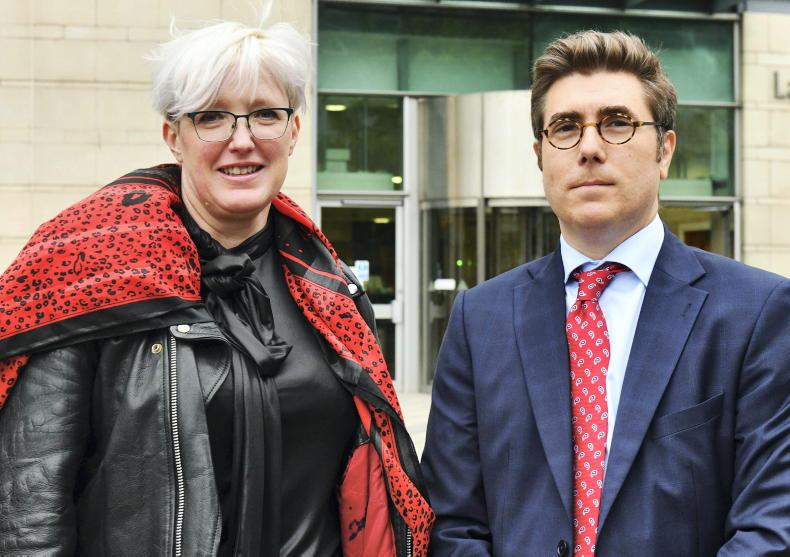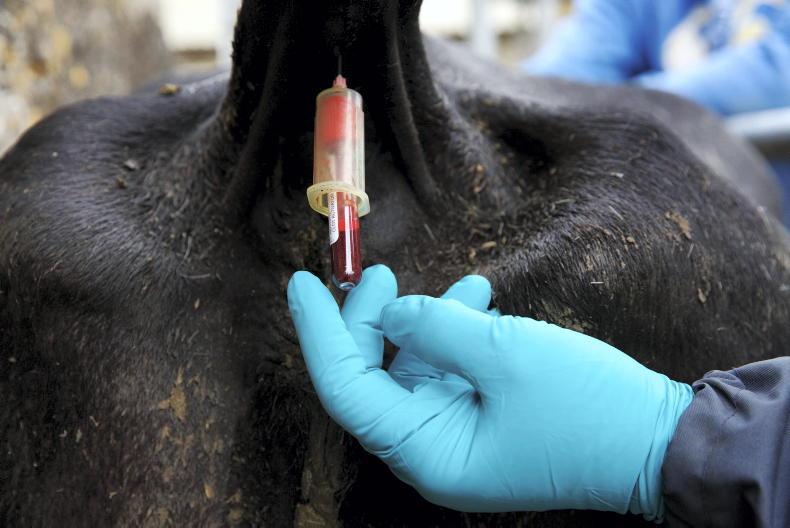In a judgement issued to contesting parties on Wednesday 22 September 2021, a tribunal has ruled that Dr Tamara Bronckaers from Co Tyrone, a former supervisory veterinary officer within DAERA Veterinary Service, was constructively dismissed from her post.
The case against DAERA was brought by Belfast law firm McCartan Turkington Breen. While the tribunal is still to convene for what is known as a “remedy hearing”, those acting on the claimant’s behalf have suggested that the win could result in a payout in the region of £1m.
Dr Bronckaers, a qualified vet, was first employed by DAERA in 1999 as a veterinary officer (VO), and moved into the supervisory veterinary officer role in 2016, with responsibility for licensing, operation, biosecurity and associated enforcement within livestock marts.
Movements
At the heart of the case is a so-called “deleted moves policy” relating to cattle movements out of livestock marts.
Within DAERA’s APHIS computer system there is what is known as a “front end”, where information is available to marts and abattoirs. There is also a “back end”, which is information held centrally by DAERA, and includes all movements of livestock.
As part of the administration around the APHIS system, DAERA permits deletion of moves at the “front end”, which means an owner of an animal can be changed while cattle are still at a mart, or en route in a lorry to the buyer’s premises. It essentially is a practical solution that allows a dealer to buy the animal in the mart, and then sort out which of their customers will be taking the animal.
It also means that rather than recording a residency for the animal in the dealer’s herd, this is deleted, and the residency is in the final herd of destination. That issue is important to farmers, after abattoirs (under pressure from supermarket customers) introduced a significant price penalty for animals with more than four farm residencies in 2014.
Abused
However, Dr Bronckaers uncovered that the “deleted moves” policy was being abused by some mart operators, with in some cases cattle being moved to a holding and then up to 50 hours later into another herd. The initial buyer would then contact the mart, and have the first move deleted from the system.
Dr Bronckaers found that up to 5,000 moves were being deleted out of NI livestock marts annually, and raised concerns with her line management that the animals might initially have gone to a TB-infected herd, before being moved on to a TB-free herd. In one particular week, she identified that 30 out of the 90 deleted moves were initially to herds that were not TB-free.
Where the system was being abused, Dr Bronckaers argued that marts should either be warned or other enforcement action taken.
Welfare
Separately, Dr Bronckaers also raised concerns with her managers about animal welfare in some marts, particularly where sheep were held overnight without food or water, and issues around traceability relating to untagged sheep being sold.
Dr Bronckaers alleged that various concerns and recommendations made in the period from February 2017 to February 2018 were ignored by her line manager Julian Henderson, she was undermined and excluded, and not copied in to relevant emails.
At a meeting with the DAERA chief vet Dr Robert Huey on 1 November 2017, he made clear his preference to try to get compliance, rather than take enforcement action relating to animal welfare in marts.
On 20 February 2018, Dr Bronckaers claimed she sent an email to her senior managers again highlighting the issues around “deleted moves” but did not receive any response. She then went outside of her management structure and emailed the head of TB Policy Neil Gartland, to receive an email reply saying “Thank You”.
Dr Bronckaers saw this as the “final straw”, alleging that her management had “closed ranks”. She resigned from DAERA on 27 February 2018, citing “personal reasons work related”.
The case put by Dr Bronckaers was that she “suffered detriment and was constructively dismissed due to her having raised protected disclosures”.
Protected disclosures legislation aims to protect people who raise concerns about possible wrongdoing in the workplace, and is often called whistleblower legislation.
The tribunal unanimously found that Dr Bronckaers was “subjected to detriment on grounds of having raised protected disclosures” and “was dismissed and that dismissal was unfair”.
Read more
Mart announces number of farm residencies
Retailer defends four-residency rule
In a judgement issued to contesting parties on Wednesday 22 September 2021, a tribunal has ruled that Dr Tamara Bronckaers from Co Tyrone, a former supervisory veterinary officer within DAERA Veterinary Service, was constructively dismissed from her post.
The case against DAERA was brought by Belfast law firm McCartan Turkington Breen. While the tribunal is still to convene for what is known as a “remedy hearing”, those acting on the claimant’s behalf have suggested that the win could result in a payout in the region of £1m.
Dr Bronckaers, a qualified vet, was first employed by DAERA in 1999 as a veterinary officer (VO), and moved into the supervisory veterinary officer role in 2016, with responsibility for licensing, operation, biosecurity and associated enforcement within livestock marts.
Movements
At the heart of the case is a so-called “deleted moves policy” relating to cattle movements out of livestock marts.
Within DAERA’s APHIS computer system there is what is known as a “front end”, where information is available to marts and abattoirs. There is also a “back end”, which is information held centrally by DAERA, and includes all movements of livestock.
As part of the administration around the APHIS system, DAERA permits deletion of moves at the “front end”, which means an owner of an animal can be changed while cattle are still at a mart, or en route in a lorry to the buyer’s premises. It essentially is a practical solution that allows a dealer to buy the animal in the mart, and then sort out which of their customers will be taking the animal.
It also means that rather than recording a residency for the animal in the dealer’s herd, this is deleted, and the residency is in the final herd of destination. That issue is important to farmers, after abattoirs (under pressure from supermarket customers) introduced a significant price penalty for animals with more than four farm residencies in 2014.
Abused
However, Dr Bronckaers uncovered that the “deleted moves” policy was being abused by some mart operators, with in some cases cattle being moved to a holding and then up to 50 hours later into another herd. The initial buyer would then contact the mart, and have the first move deleted from the system.
Dr Bronckaers found that up to 5,000 moves were being deleted out of NI livestock marts annually, and raised concerns with her line management that the animals might initially have gone to a TB-infected herd, before being moved on to a TB-free herd. In one particular week, she identified that 30 out of the 90 deleted moves were initially to herds that were not TB-free.
Where the system was being abused, Dr Bronckaers argued that marts should either be warned or other enforcement action taken.
Welfare
Separately, Dr Bronckaers also raised concerns with her managers about animal welfare in some marts, particularly where sheep were held overnight without food or water, and issues around traceability relating to untagged sheep being sold.
Dr Bronckaers alleged that various concerns and recommendations made in the period from February 2017 to February 2018 were ignored by her line manager Julian Henderson, she was undermined and excluded, and not copied in to relevant emails.
At a meeting with the DAERA chief vet Dr Robert Huey on 1 November 2017, he made clear his preference to try to get compliance, rather than take enforcement action relating to animal welfare in marts.
On 20 February 2018, Dr Bronckaers claimed she sent an email to her senior managers again highlighting the issues around “deleted moves” but did not receive any response. She then went outside of her management structure and emailed the head of TB Policy Neil Gartland, to receive an email reply saying “Thank You”.
Dr Bronckaers saw this as the “final straw”, alleging that her management had “closed ranks”. She resigned from DAERA on 27 February 2018, citing “personal reasons work related”.
The case put by Dr Bronckaers was that she “suffered detriment and was constructively dismissed due to her having raised protected disclosures”.
Protected disclosures legislation aims to protect people who raise concerns about possible wrongdoing in the workplace, and is often called whistleblower legislation.
The tribunal unanimously found that Dr Bronckaers was “subjected to detriment on grounds of having raised protected disclosures” and “was dismissed and that dismissal was unfair”.
Read more
Mart announces number of farm residencies
Retailer defends four-residency rule










SHARING OPTIONS